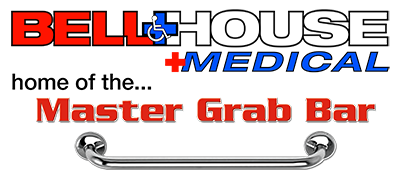Navigating the Transition from 65 to 75 and Beyond: Staying Safe and Independent at Home
Tue, Sep 3rd, 2024
Aging is a natural part of life, but the transition from 65 to 75 and beyond often brings noticeable changes in the body and mind. These years can be a time of growth and fulfillment, but they also require adapting to new physical and cognitive challenges.
By understanding these changes and taking proactive steps to maintain function, older adults can continue to live safely and independently in their homes. In this post, we’ll explore the typical changes that occur during this stage of life and discuss how medical equipment can help you or your loved ones navigate this transition with confidence.
Understanding the Changes from 65 to 75 and Beyond
As we age, our bodies undergo several changes that can impact daily life. While everyone experiences aging differently, some common changes include:
- Decreased Mobility: Muscle mass and strength tend to decline with age, leading to reduced mobility and balance. This can make tasks like walking, climbing stairs, and even standing up from a chair more challenging.
- Joint Stiffness and Pain: Arthritis and other joint-related issues often become more pronounced with age, causing discomfort and limiting movement.
- Vision and Hearing Loss: Many older adults experience changes in vision and hearing, which can affect their ability to navigate their environment and communicate effectively.
- Cognitive Changes: Memory, attention, and processing speed may decline, making it harder to manage complex tasks or remember important details.
- Increased Risk of Falls: With reduced mobility, balance, and sensory perception, the risk of falls increases significantly. Falls are a leading cause of injury among older adults and can have serious consequences.
- Changes in Bone Density: Bone density tends to decrease with age, increasing the risk of fractures from even minor accidents.
- Chronic Health Conditions: Conditions such as diabetes, heart disease, and hypertension become more common and may require ongoing management.
Maintaining Function and Independence
While aging is inevitable, there are many ways to maintain function and independence during this transition. By focusing on physical health, mental well-being, and home safety, older adults can continue to enjoy a high quality of life.
- Stay Physically Active: Regular exercise is crucial for maintaining muscle strength, flexibility, and balance. Activities like walking, swimming, yoga, and strength training can help keep your body strong and mobile. Consult with a healthcare provider to create a personalized exercise plan that suits your needs.
- Eat a Balanced Diet: Proper nutrition is essential for maintaining energy levels, bone health, and overall well-being. A diet rich in fruits, vegetables, whole grains, lean proteins, and healthy fats can provide the nutrients your body needs to stay strong.
- Engage in Mental Stimulation: Keeping your mind active is just as important as maintaining physical health. Activities like reading, puzzles, and socializing can help preserve cognitive function. Consider joining clubs or taking classes to stay mentally engaged.
- Monitor Health Regularly: Regular check-ups with your healthcare provider can help you stay on top of chronic conditions and catch potential issues early. Don’t hesitate to discuss any new symptoms or concerns with your doctor.
- Prioritize Sleep: Quality sleep is vital for overall health. Establish a regular sleep routine and create a comfortable sleeping environment to promote restful sleep.
- Create a Safe Home Environment: As mobility and balance decrease, it’s important to make your home as safe as possible. Simple modifications like removing tripping hazards, improving lighting, and installing handrails can significantly reduce the risk of falls.
How Medical Equipment Can Help
At this stage of life, investing in the right medical equipment can make a significant difference in safety and independence. Here are some ways that our company’s products can support you or your loved ones:
- Mobility Aids: Devices like walkers, canes, and rollators can provide the stability needed to move around safely. For those with more significant mobility challenges, powered wheelchairs and scooters offer increased freedom and independence.
- Bathroom Safety: The bathroom is one of the most common places for falls to occur. Installing grab bars, shower chairs, and raised toilet seats can make the bathroom a safer place. For those with limited mobility, consider an accessible shower or a commode chair.
- Bedroom Aids: Adjustable beds, bed rails, and transfer aids can help make getting in and out of bed easier and safer. These devices also assist caregivers in providing support without straining themselves.
- Lifting and Transfer Devices: For individuals who need assistance with moving from one place to another, lifts and transfer devices can provide the necessary support. These tools make transfers safer for both the individual and the caregiver.
- Monitoring and Alert Systems: For added peace of mind, consider installing monitoring systems that can alert caregivers in case of an emergency, such as a fall. Personal emergency response systems (PERS) allow individuals to call for help at the push of a button.
- Home Modifications: If staying at home becomes challenging, home modifications like ramps, stairlifts, and widened doorways can help make your living space more accessible.
Aging is a journey that comes with its own set of challenges, but with the right tools and support, it’s possible to navigate the transition from 65 to 75 and beyond with grace and confidence. By understanding the changes that come with age and taking proactive steps to maintain function, you can continue to enjoy independence and safety in your home. Bell House Medical is here to help you every step of the way, offering a wide range of medical equipment designed to meet your unique needs. Let us help you or your loved ones stay safe, independent, and thriving for years to come.






